Page 4 of 4
April 28 – 29 2016 – UCL Institute of the Americas
Following the success of our 1st International Conference in 2015, the UCL Americas Research Network invites graduate students and early career researchers working on any aspect of the Americas to participate in our 2nd International Conference: ‘Ideas & Transformations in the Americas’ with keynote speeches by Prof Maxine Molyneux (UCL Institute of the Americas) and Prof Diane Negra (University College Dublin).
With important elections coming up across the region in 2015-16 it is essential to pause and consider how ideas can transform the political, economic, social and cultural landscape across the Americas. We welcome papers from international researchers working across the humanities, the social sciences and beyond in order to create a dynamic, interdisciplinary conference that will showcase the depth and quality of emerging research on the Americas.
This includes proposals that explore Central, South and North America and we particularly encourage participation from researchers whose focus is upon Canada and the Caribbean. Whether this is national, regional, local, comparative, transnational, or global we hope to create a hemispherically-diverse conference which will foster interdisciplinary conversations that transcend the boundaries of the nation-state.
We welcome proposals that explore any topic pertaining to the broad theme of the conference, including:
- The interaction of social, cultural, economic and political ideas
- Regional transformation, cooperation, integration and conflict
- International relations and foreign policy
- History, narratives and identity
- Democracy, human rights and security
- Protest, social movements and regime legitimacy
- Urbanization, ecology, communities and agrarian movements
- Gender and feminism
The conference will be free to attend. Please submit abstracts to: uclamericasresea
NOTE: Abstracts should be no longer than 250 words and should be accompanied by a short biographical note. The Network will respond to all potential participants in January 2016 and the deadline for the submission of accepted papers will be March 31 2016.
The US-UK Fulbright Awards Programme offers opportunities for you to study, lecture, or pursue research in any academic field.
For UK citizens, the US-UK Fulbright Commission offers a variety of grants and places on special programmes to the US. Scholars are selected through a rigorous application and interview process and receive a high level of support ranging from visa processing and health insurance to a comprehensive pre-departure Orientation and re-entry session.
The Commission is also the first point of contact for US citizens coming to the UK on a Fulbright exchange organising programmes and support throughout the year including an arrival orientation in September and an annual Fulbright Forum on current political, social and cultural issues.
Fulbright also offers a variety of UK-based Summer Institutes and US-based Summer Institutes for high school students and undergraduates. These summer programmes are extremely varied and provide opportunities for students to experience academic life across the pond.
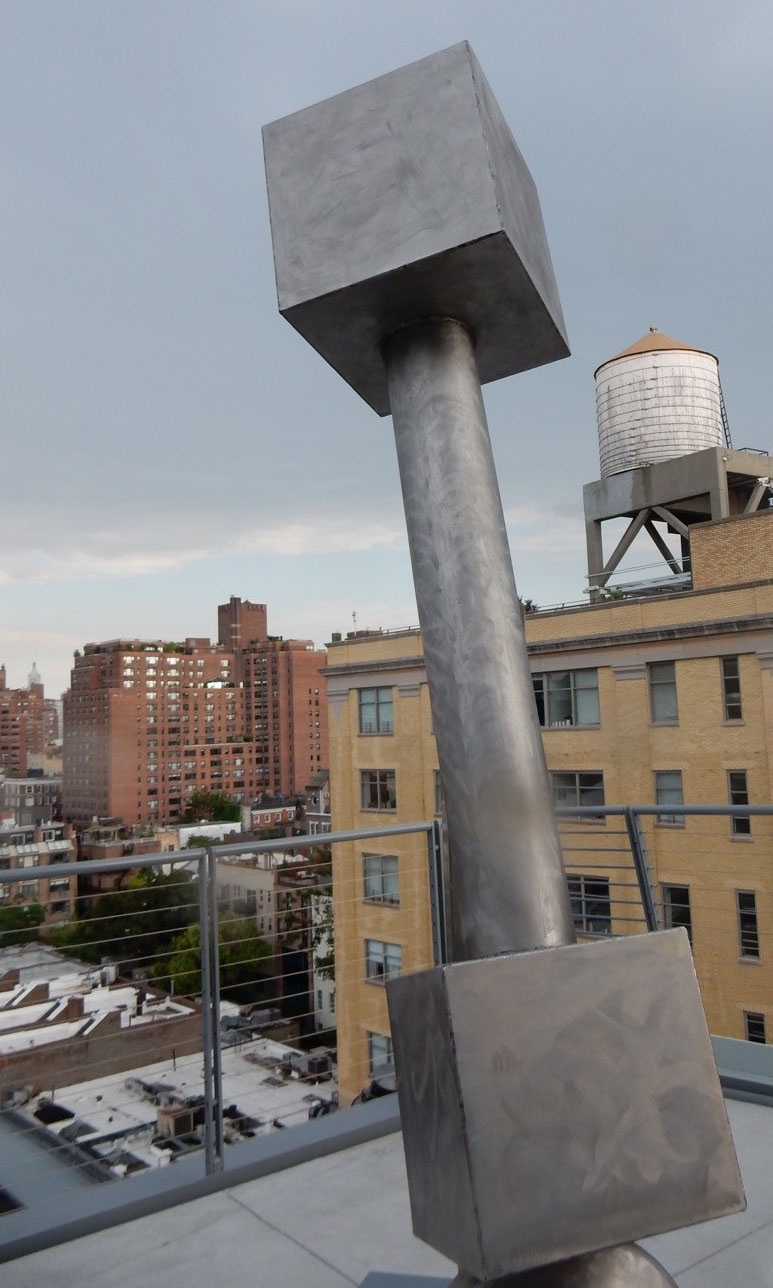
On the terrace at the Whitney, September 2015
On a recent trip to New York, I visited the new Whitney Museum of American Art. The museum recently moved from Manhattan’s Upper East Side to large new premises in the Meatpacking District overlooking the Hudson River. It opened in May with a suitably ambitious exhibition entitled ‘America is Hard to See’ (a phrase borrowed from a 1951 meditation on Columbus by Robert Frost). As one of the curators explained, the exhibition does not claim to offer a ‘comprehensive history’ of American art so much as ‘a series of provocative thematic chapters’. The concluding chapter, ‘Course of Empire’, takes its title from a series of works by Ed Ruscha (from 2005), which in turn alludes to Thomas Cole’s 1833-36 series, The Course of Empire, the title of which comes from the opening line of a 1729 poem by Bishop George Berkeley.
Allusion accrues and intensifies in the exhibition’s final chapter; not least in Glenn Ligon’s Rückenfigur (2009). The work is steeped in art history –from signage and minimalist neon sculpture to the ancient convention of the figure seen from behind whose perspective the viewer is invited to share. A famous example is Caspar David Friedrich‘s Der Wanderer über dem Nebelmeer (1818); wanderer above the sea of fog.
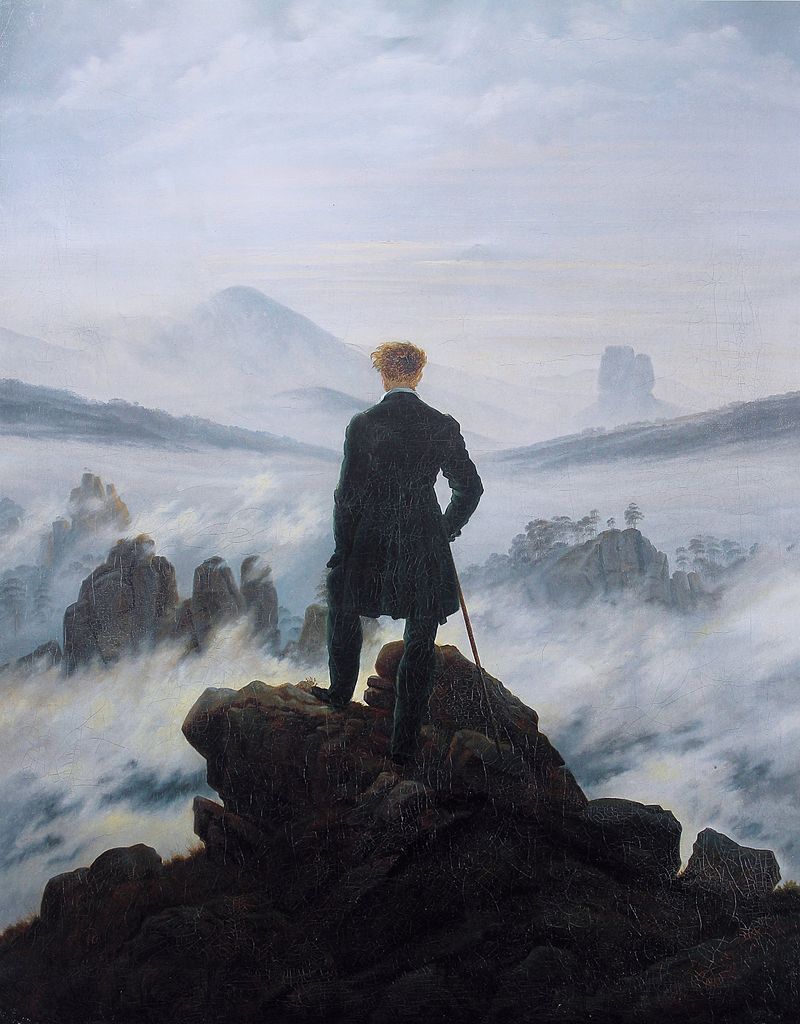
Caspar David Friedrich,
Der Wanderer über dem Nebelmeer (1818)
oil on canvas (98.4 cm × 74.8 cm)
Kunsthall Hamburg
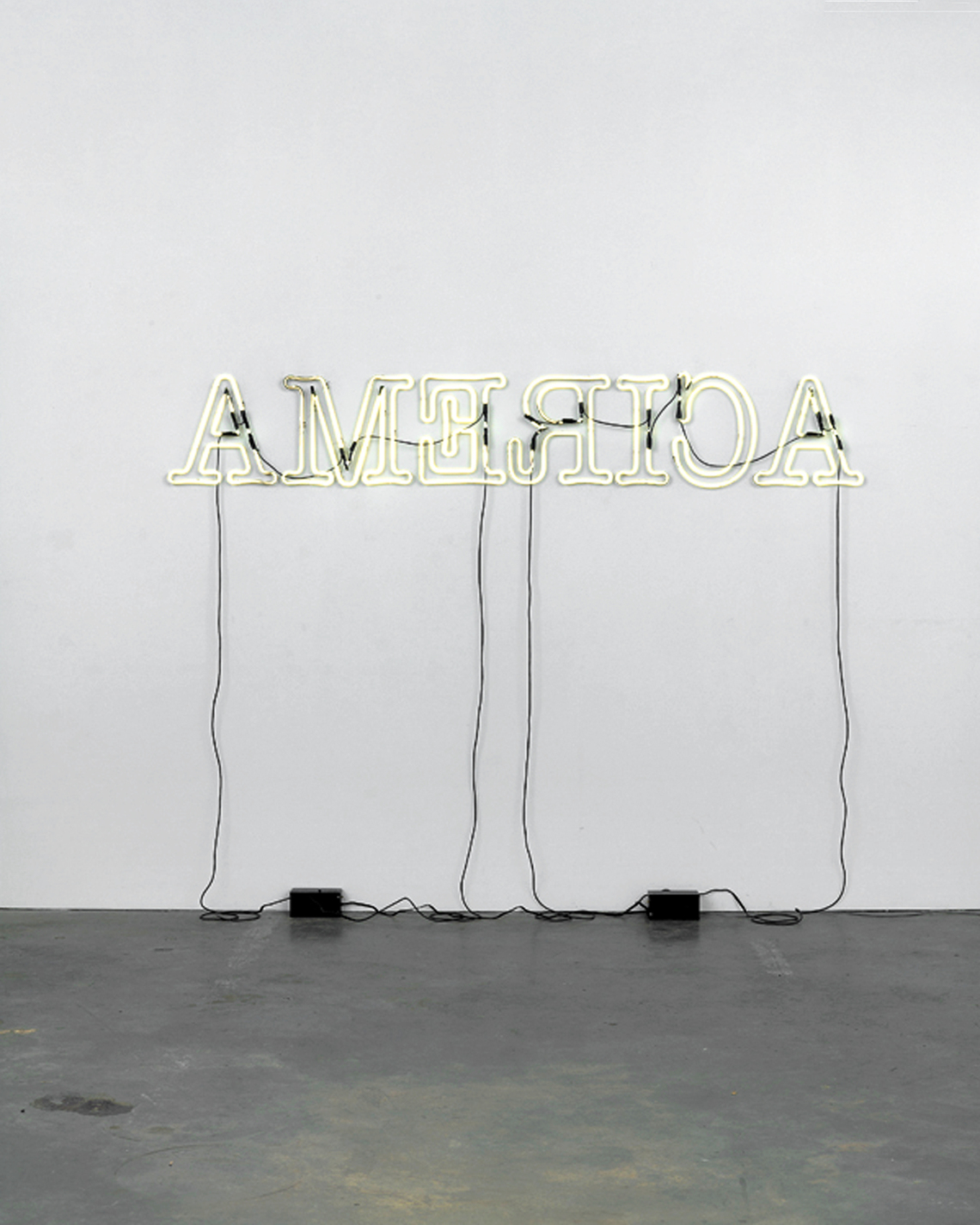
Glenn Ligon, Rückenfigur, 2009.
Neon and paint (61 × 369.6 × 12.7 cm).
Whitney Museum of American Art, New York
© Glenn Ligon; Courtesy the artist and Regen Projects, LA
‘And that’s one of the really interesting things about this piece,’ says the curator Scott Rothkopf, ‘this idea of America, this country, this word facing away from us but at the same time addressing us. …You see the fragile connections between these letters, which I think suggests the sense of America, this country, as a confederacy that’s both united and sometimes divided. And I think that all of those things, in a way, function metaphorically for where this country is at this moment.’
Rückenfigur is part of an (ongoing?) series of neons that riff on national symbolism. The first, from 2006 – now on show at the Tate – had the neon painted black and intermittently turn off. Ligon described it as a response to the idea ‘that America, for all its dark deeds, is still this shining light. That’s how the piece came about, because I was thinking about Dickens’s “the best of times, the worst of times.” Yes, that’s where America is. We can elect Barack Obama, and we’re still torturing people in prisons in Cuba.’
As the series progresses, the shining light is getting harder to see. The most recent addition, exhibited in Los Angeles earlier this year, features two neon Americas face down on the floor There’s no more foggy ambiguity here; no more pleasure in the wandering processes of our own perception. Instead, I am reminded of the final painting in Cole’s series – Desolation.
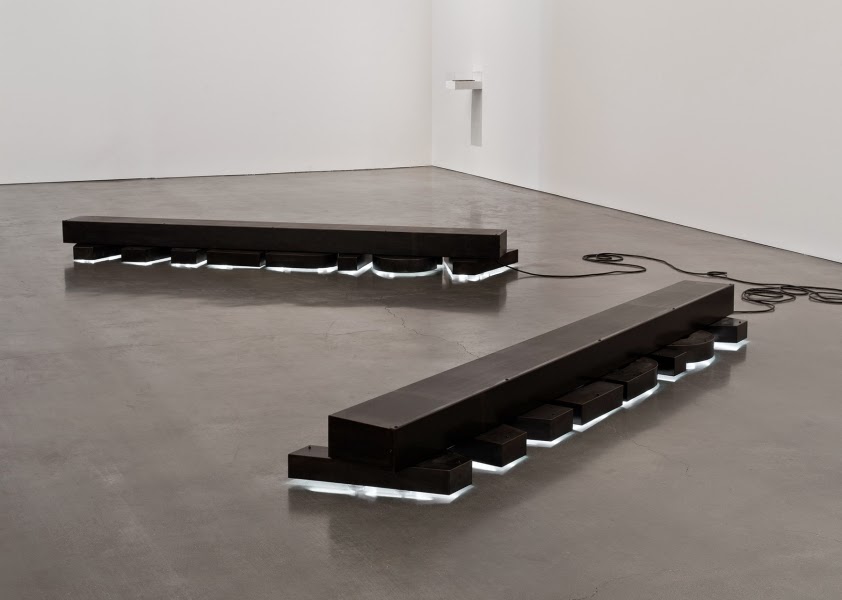
Installation view of Glenn Ligon,
Well, it’s bye-bye/If you call that gone
Regen Projects, Los Angeles
March 14 – April 18, 2015
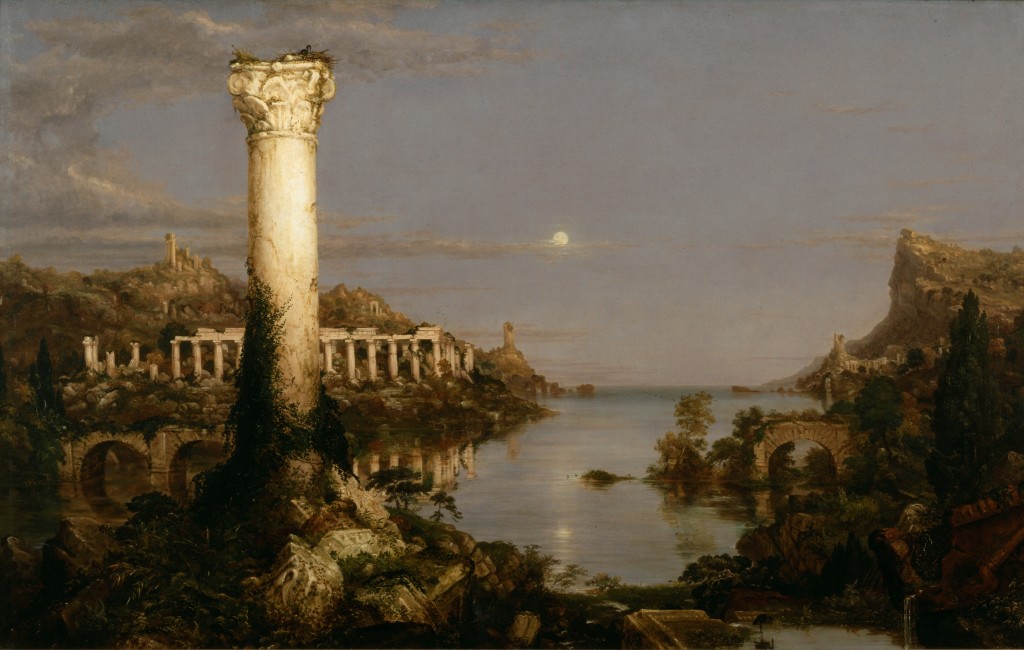
Thomas Cole, Desolation. 1836 (99.7 x 160.7 cm) New York Historical Society
American into Periodical Studies, The British Library, 18th December, 2015.
The Network of American Periodical Studies (NAPS) is a new research initiative that aims to bring together scholars working on American periodicals (magazines, newspapers and other periodical publications) from any historical period.
The first NAPS symposium seeks to explore and debate some of the theoretical, methodological and practical implications of the rise of periodical studies for American Studies. We welcome papers on the publication, production, dissemination and reception of American periodicals from the colonial to the contemporary periods and we encourage colleagues to reflect on how periodical studies might provide new ways of thinking about and interpreting the cultural history of the Americas. To what extent, for instance, does the study of periodicals challenge the boundaries circumscribing ‘America’ as a nation? What is the role of the American periodical in the public sphere and how has it changed? How do periodicals map the spaces of America? In what ways do periodicals reinforce and/or transgress the divide between literature and journalism? How does the material history of print culture offer alternative ways of reading and interpreting the complex and often contradictory identities of America? What is the impact of digitization on research into American periodical studies and to what extent does the study of periodicals offer new pedagogic opportunities for American Studies?
Included in the day’s activities will be a workshop on the British Library’s American periodicals holdings, an invited plenary lecture as well as lunch and a wine reception. In addition and as an option for those not wishing to give a presentation, there will be an informal research forum providing the opportunity for scholars to give a five minute summary of their research.
This event is co-hosted and supported by the Eccles Centre for American Studies at the British Library, the University of Sussex and Northumbria University with additional support from the British Association of American Studies.
Abstracts of 250-300 words are invited for twenty minute papers by October 31st, 2015. Please send to: Victoria.Bazin@northumbria.ac.uk .
Should you wish to present a summary of your research in the research forum please submit a title by October 31st, 2015 to: Victoria.Bazin@northumbria.ac.uk
Registration fee: £20.00
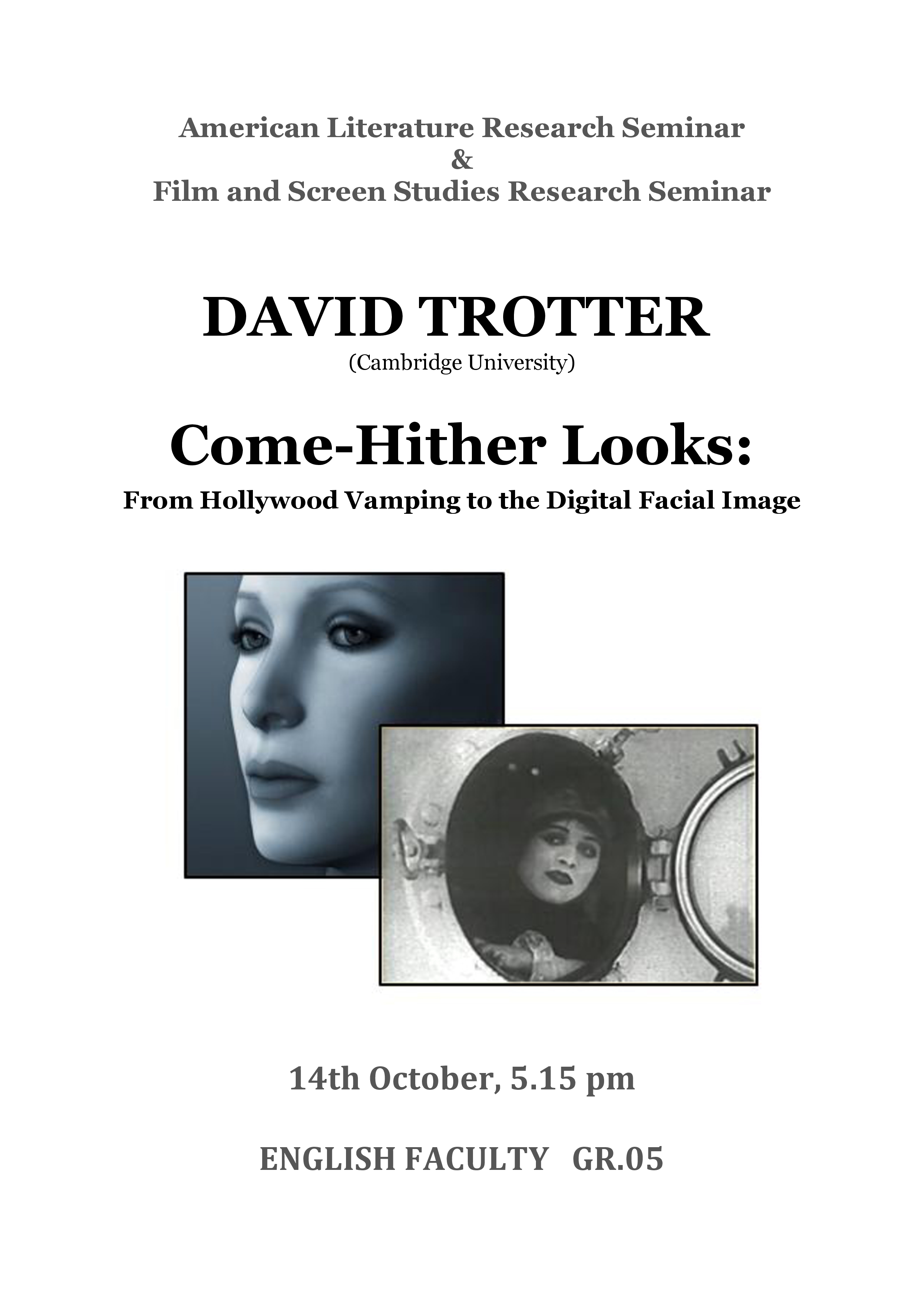
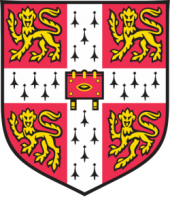
Recent Comments